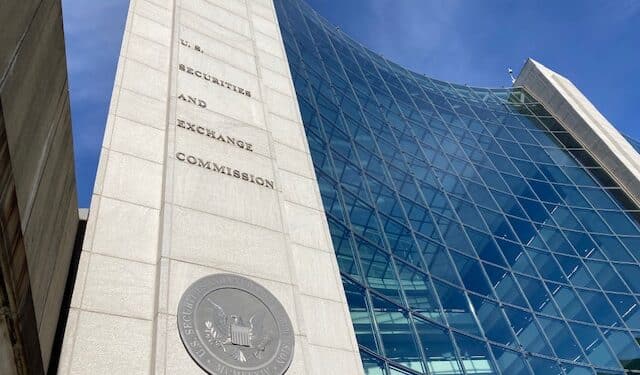On November 28, the U.S. Securities and Exchange Commission (SEC) announced that a whistleblower “who provided new and critical information that led to the success of an enforcement action” received a $20 million whistleblower award. The award order sheds light on the $20 million award and two other individuals who tried to be awarded for this enforcement action.
Through the SEC Whistleblower Program, qualified whistleblowers are entitled to awards of 10-30% of the sanctions collected in the enforcement action aided by their disclosure. Thus, in each whistleblower-assisted case, 70-90% of sanctions are returned to harmed investors or the U.S. Treasury.
The $20 Million Whistleblower Award
The award order states that the whistleblower who won the award, Claimant 1, “voluntarily provided original information to the Commission and that this original information led to the successful enforcement of the Covered Action.” The whistleblower “provided significant information and continuing helpful assistance that enabled Commission staff to more quickly and efficiently investigate” issues related to the case, specifics of which remain redacted.
However, Claimant 1 “was involved for a short period and at the direction of his/her supervisor in the conduct underlying part of the Covered Action” and also “delayed reporting for over two years after being involved in such conduct.” Nevertheless, the SEC deemed $20 million the appropriate award amount that accounts “for both his/her level of culpability and unreasonable reporting delay.”
The Denied Whistleblower Awards
Another individual, Claimant 2, had an award claim that was denied. The SEC’s Claims Review Staff (CRS) initially determined that Claimant 2’s award should be denied because they “did not provide information that led to the success of the Covered Action.” The agency states that Claimant 2 submitted two TCRs, but according to a staff declaration, “the Covered Action investigation staff never reviewed Claimant 2’s first TCR or had any communication with him/her about his/her information.” The award order states that “Claimant 2 submitted the second TCR just hours before the Covered Action was instituted.”
Claimant 2 submitted a reconsideration request, and the award notice provides details about the individual’s response. Claimant 2 said that they sought legal representation, but “a month and a half before institution of the Covered Action, he/she provided the information that would be in his/her later tip to a lawyer and that lawyer later advised him/her that he could not represent him/her because he had a conflict of interest.”
Interestingly, “Claimant 2 speculates that that lawyer may have been representing the Company in the Covered Action investigation and that his/her information may have provided the Company with extra motivation to settle the Covered Action in order to avoid Enforcement staff from expanding the investigation to include the misconduct alleged by him/her.” The award order includes an Analysis section for the denial of Claimant 2’s award application denial.
The CRS also denied Claimant 5’s award claim “because Claimant 5 did not provide information that led to the success of the Covered Action.” This individual submitted 4 tips, but the award order notes that “[t]hese tips were not related to the charges in the Covered Action.”
Claimant 5 also submitted a reconsideration request and asserted that they were entitled to an award because of the tips they made. However, in the Analysis section, the award order states that “Claimant 5’s information did not cause Enforcement staff to open the Covered Action investigation or to inquire into different conduct as part of the Covered Action investigation and did not significantly contribute to the success of the Covered Action.”
“Today’s whistleblower played a crucial role in the ultimate success of the enforcement proceeding,” said Creola Kelly, Chief of the SEC’s Office of the Whistleblower. “Whistleblowers can help advance existing investigations in meaningful ways when their information saves the agency time and resources, and when their contributions allow SEC staff to better understand complicated issues.”
The SEC Whistleblower Program’s Success
On November 15, the SEC announced its enforcement results for Fiscal Year 2022 (FY 2022) and highlighted the whistleblower program’s success and its importance in the agency’s enforcement success.
“The SEC’s Office of the Whistleblower is an integral part of the Enforcement Program,” the report states. “In fiscal year 2022, the SEC issued approximately $229 million in 103 awards, making it the SEC’s second highest year in terms of dollar amounts and number of awards. The Whistleblower Program also received a record high number of whistleblower tips alleging wrongdoing—more than 12,300 whistleblower tips—in fiscal year 2022.” Read more about the FY 2022 enforcement results on WNN.




